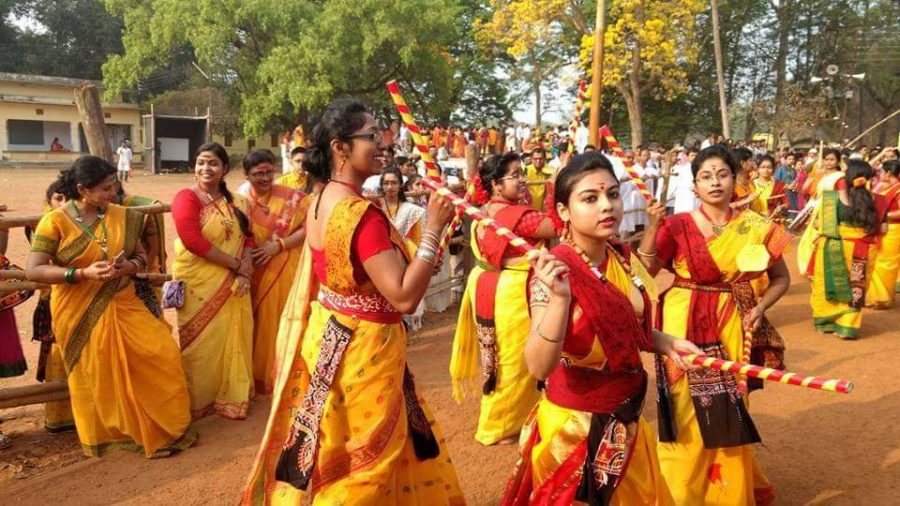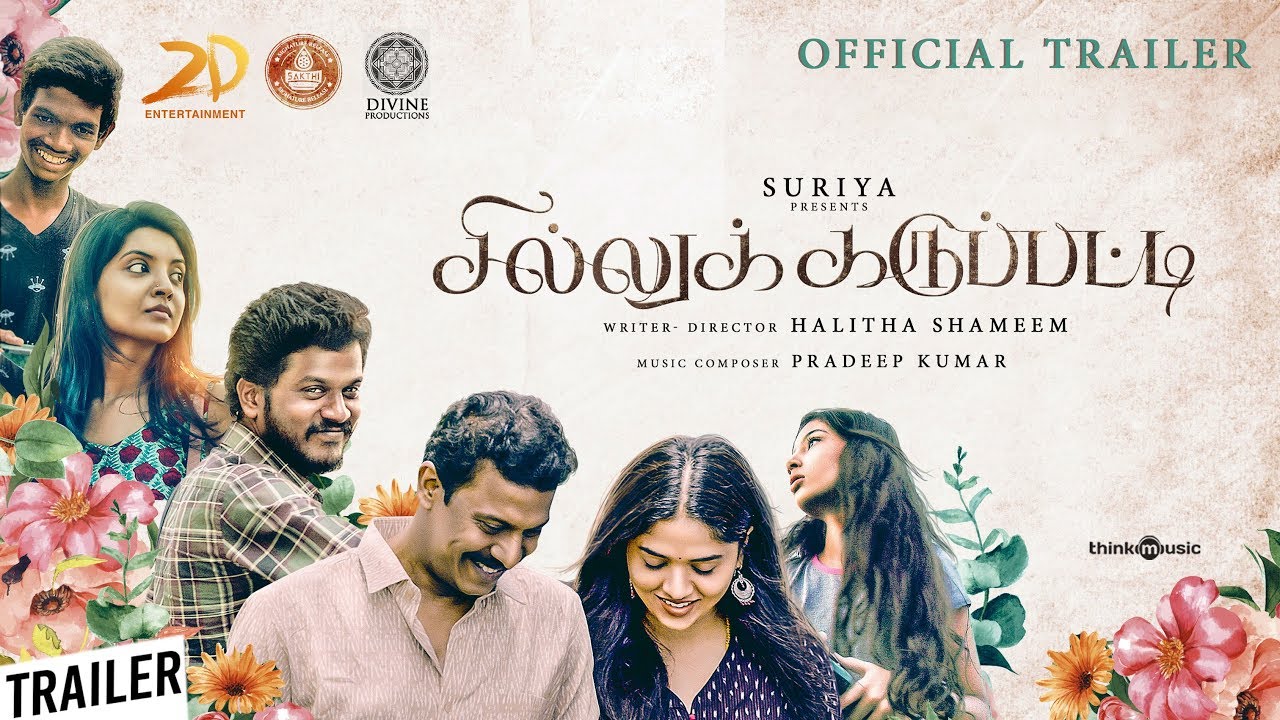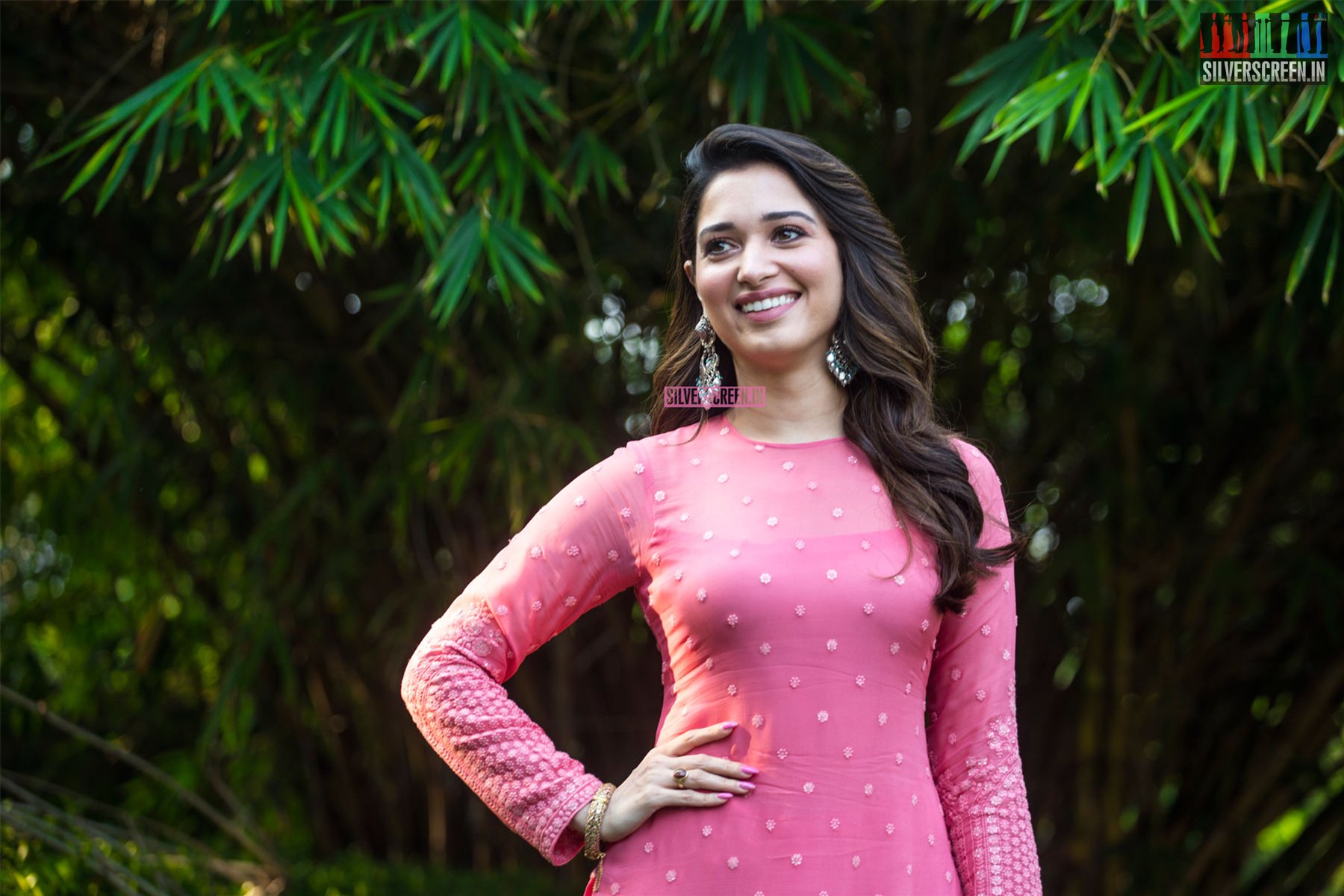Basanta Utsav, a festival celebrating spring and its colours initiated by poet and Nobel laureate Rabindranath Tagore in his institution Visva-Bharati University in Santiniketan, West Bengal, was closed this year for outsiders for the first time in almost 100 years. The festival, commonly known as Dol Utsav that is usually held a day ahead of Holi on the day of Dol Purnima, was held weeks before Holi on March 14 in a “hush-hush” manner. The university’s vice chancellor Bidyut Chakraborty reportedly sent a notice to this regard 24 hours before the muted celebrations were held.
While Chakraborty cited Covid-19 preventive protocols for keeping it a closed-door affair, it is speculated that he wanted to bar alumni, ashramiks, local residents, artists, and tourists from attending the festivities.
Pioneered by Tagore in the early 1920s, Basanta Utsav celebrates the colours of phagun (spring) with flowers and abir (dry colours). The festival starts early in the morning with a procession in which students and faculty dressed in basanti (yellow) coloured sarees and kurta sing and dance to Rabindra Sangeet all their way from the university to the maidan (ground),where the stage is constructed. Lakhs of people across the state, country and from different corners of the world join the celebration including several celebrities, alumni, ashramiks (alumni of Visva Bharati who are residents of the Ashram for several years and generations inside the campus made and allotted by Tagore himself), and locals.
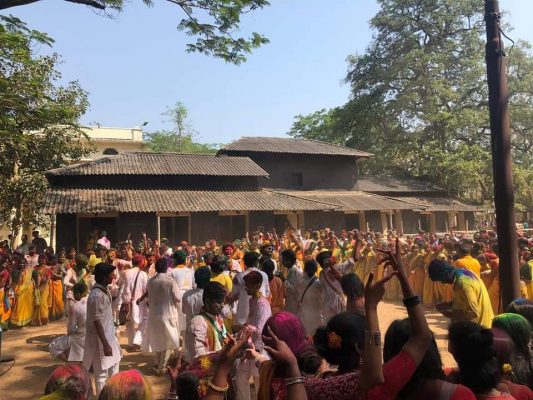
Tagore’s vision of a ‘free-spirited’ Visva Bharati
Tagore, who could not confine himself within the four walls of a classroom, believed in traditional and ancient Indian education rather than the westernised style of education. He established open-air classrooms in Santiniketan in Bengal’s Birbhum district. Now known as Patha Bhavan, school lessons are given under trees in open spaces where children can connect to nature directly. The Visva-Bharati University caters to a wide section of students and has several undergraduate, post-graduate, diploma and doctorate courses focusing on music, arts, performing arts, languages, social work, agriculture, rural, cottage and handicraft industries, and many more.
Tagore believed that education and intellect can not be limited to the four walls, and creativity cannot have boundaries. The university infrastructure, that did not have any solid boundary walls until last year, still includes mud houses with thatched roofs with residents and students mostly riding bicycles to avoid air pollution.
Speaking to Silverscreen India, Subir Banerjee, an ashramik who organises and teaches drama and whose father was a classmate of renowned painter and sculptor Ramkinkar Baij and friends with Tagore, said: “Culture cannot be walled off.”
“He (the vice-chancellor) is trying to construct a wall which is completely opposite to the Santiniketan culture because he does not understand the Rabindranath’s culture,” Banerjee said.
The vice chancellor has been facing flak ever since his appointment in October 2018 for calling Tagore an “outsider” in Santiniketan, arbitrary transfer orders to faculty, barring faculty from speaking to the media, and threatening teachers with dire consequences if they don’t follow university rules and guidelines. He has also been courting controversy for erecting boundary walls to demarcate between Visva-Bharati property and commercial land.
The vice chancellor of the Visva-Bharati University is appointed by the Centre, with the prime minister heading it as its chancellor. It is the only Central university to have the country’s prime minister, instead of the president, as the chancellor.
In December 2020, the university named Nobel laureate Amartya Sen as an illegal occupant of the campus. Sen has an ancestral home, Pratichi, in Santiniketan which he continues to visit. As per The Indian Express, the university’s estate office had prepared a list of illegal occupants which included Sen and his house. The university claimed that Sen had been occupying around 138 decimals, while the original lease was given on 125 decimals. Sen, who was named ‘Amartya’ by Tagore himself, grew up in Pratichi; the house built by his father in Santiniketan. The plot of land on which Pratichi is built, was, in fact, a gift from Tagore. Tagore had invited Kshitimohan Sen, the maternal grandfather of the economist and a reputed Sanskrit scholar, to Santiniketan in 1908. Kshitimohan Sen had played a key role in building Visva-Bharati along with Tagore. On the campus, several plots have been given to eminent persons on a 99-year lease since the time of Tagore.
During an online meeting with faculty and non-teaching staff in December 2020, Chakraborty had mentioned a telephone conversation between Sen. A source close to the university said that a member of the Visva Bharati University Faculty Association (VBUFA) had contacted Sen to clarify whether this conversation took place and sent letters to faculty members informing them regarding the same. Sen denied having any such conversation with Chakraborty.
Sen is known to be a staunch critic of the BJP-led government at the Centre.
In 2020, protests broke out after he constructed a boundary wall around the Poush Mela ground under the vice chancellor’s direction. The 125-year-old tradition of hosting Poush Mela, an annual fair held in December in Santiniketan, was cancelled in 2020 for the first time and a wall was constructed around the ground to prohibit the entry of “outsiders who indulge in anti-social activities”. This led to a a violent protest in August 2020 and protestors razed down a portion of the boundary wall.
Chakraborty cited the ongoing Covid-19 pandemic for cancelling the fair. However, students, residents and local traders whose business majorly depend on the fair said the vice chancellor was trying to end the tradition of Poush Mela. The locals also protested Union Home Minister Amit Shah’s visit in December 2020 for turning Tagore’s long-standing ideologies into political vendetta.
“Santiniketan has a different culture. One cannot treat this place like any other culture by entangling the place with mandir and puja. Then it does not stay Santiniketan anymore. Here, there is no mandir puja or masjid puja but rather the main festival is that of the seasons- Rituraj- there are different festivities for each season here,” Banerjee said.
Visva-Bharati, the hub of art and culture, had notable students such as Oscar awardee Satyajit Ray, singer Suchitra Mitra, Ramkinkar Baij, Benode Behari Mukherjee, pioneer of modern Indian art Nandalal Bose, among many other national and international icons.
Created with the ideologies of Tagore including freedom of expression, ideas of secularism and nationalism in 1863, Visva-Bharati was deemed as a Central university by Parliament in 1951. The executive board members include the country’s President as the paridarshaka (visitor), the Governor of West Bengal as the pradhana (rector), the Prime Minister as the acharya (chancellor), and the upacharya (vice chancellor).
In May 2018, Prime Minister Narendra Modi visited Visva-Bharati to attend the convocation and inaugurated Bangladesh Bhavan along with Bangladesh Prime Minister Sheikh Hasina.
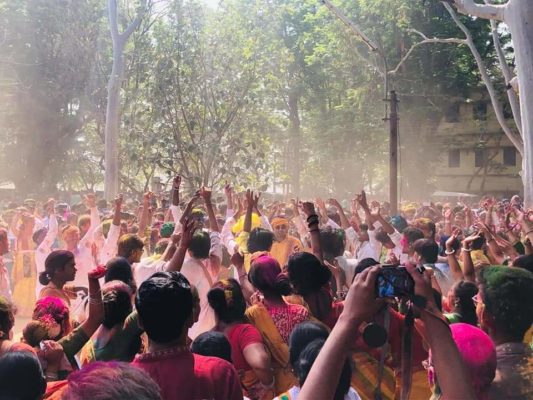
Supriyo Thakur, a descendant of Tagore and an ashramik said: “I am extremely disappointed with what Santiniketan has turned out to be and I am afraid that the way things are going on right now, it will be impossible to take Visva-Bharati and its culture to its original form, unless it is changed completely. This is definitely political and very unfair. I am old now so I am unable to protest.”
Silverscreen India tried to contact several faculty members, PRO and the vice-chancellor’s office but they did not respond and denied speaking on the issue citing “professional ethics” and job risk as it will be considered as a “crime” to comment. They said they had issued a fatwa, an unofficial order, restraining them from speaking to the media or outside the campus regarding any issue related to the university.
When Silverscreen India tried to contact the vice-chancellor, the university’s PRO Anirban Sircar said they would soon issue a press release and cited Covid-19 restrictions imposed by the Ministry of Home Affairs as the “primary reason” of holding a toned down Basanta Utsav.
“It was held as per the SOP which prevented Visva-Bharati from allowing access to the outsiders. We undertook rehearsals earlier and Basanta Utsav was celebrated by strictly following Gurudev’s [Tagore] prescribed format with participation by the students, teachers and non-teaching staff of Visva-Bharati. The utsav was peaceful and well-organised and never became Basanta Tandav [chaos] as was the case in 2019,” Sircar said.
In protest, Ashramiks along with some students and local residents will organise a private Basanta Utsav on April 2 in front of Sen’s house. It will be attended by family members of Sen and Tagore, among others.
Requesting anonymity, a faculty member of the Sangeet Bhavan told Silverscreen India that it was decided last year itself that this year’s Basanta Utsav would be celebrated days before Holi to avoid the uncontrollable crowd. With the University remaining closed throughout 2020 and no students in the campus, the faculty member said festivities had originally been scrapped but was hastily arranged to not disappoint some of the students residing in neighbouring town Bolpur and to continue the years-old ritual.
The VBUFA member, however, claimed it to be an indirect attack on people’s freedom of speech and expression, “an attempt to silence voices” and break all associations and organisations, restrict criticism. He has recently moved the Calcutta High Court and filed several cases including the right to privacy and freedom of speech, while facing a number of charges himself.
Dhrubajyoti Nandi, a resident of Santiniketan and contributing editor of Bengali newspaper Aajkaal, described Visva-Bharati as the “custodian of Tagore’s thoughts and ideas”.
“The vice chancellor is supposed to spearhead the team to ensure dissemination of such thoughts and ideas but the incumbent vice chancellor has a total misconception about his responsibilities and has understood it all wrong,” Nandi said.
According to Nandi, Chakraborty has assumed his responsibility as a “door-keeper, a guard of Visva Bharati who loves to regulate entries to Visva Bharati or the campus”.
“He creates gates and walls and prevents people from visiting the famous sculptures present inside in Kala Bhavan and Sangeet Bhavan complex created by Baij,” Nandi said.
Several complexes, including Uttrayan complex, the Tagore museum that houses all the five buildings where Tagore used to stay, Ashram Prangan, Santiniketan griha, Chhatim Tola, Amrakunja are barred for visitors.
This comes as a contrary to Tagore’s famous lines: “Where the mind is without fear and the head is held high; Where knowledge is free; Where the world has not been broken up into fragments by narrow domestic walls.”
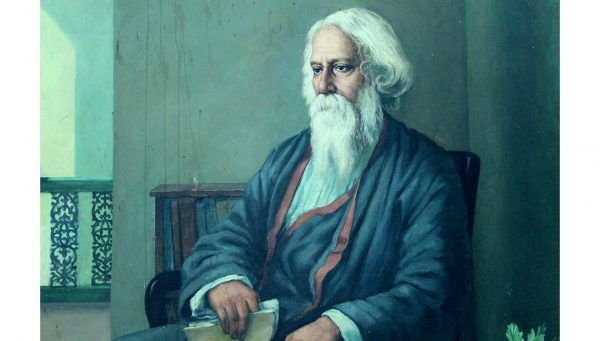
“The places that have long been identified as an icon of free thoughts and tolerance, secular ideas, visitors have been prevented from visiting those places. This is not happening without an agenda which is to make people forget about Tagore’s ideas of secularism and tolerance,” highlighted Nandi.
He said a part of that “agenda” was to stop all heritage programs conducted by Visva-Bharati and bar outsiders from witnessing it. These programs are being conducted in a scaled-down manner only because it is mandatory, he said.
“He [vice chancellor] is trampling on the ideas of Tagore, plurality, secularism, tolerance and everything that Tagore is known for and Visva-Bharati is suffering it along with its students and faculty. Traders and local residents are also made to suffer. Because of the absence of the student body, he is imposing these kinds of rules,” Nandi added.
The state of student politics in Visva Bharati University
An MA student of Sangeet Bhavan, who has been a part of the festivities for years, said she did not perform in the Basanta Utsav this year because she wanted to protest its rushed manner. Ruing the absence of a strong students’ union, she said it enabled Chakraborty to misuse his powers.
Recommended
According to her, the vice-chancellor has taken the position to “destroy the heritage of Visva-Bharati” and the environment by hampering the cultural festivities which has involvement from the Centre as well. She said it was evident that he is a BJP supporter as he had held meetings during the anti-CAA protests and harassed the students supporting the protests.
Students and faculty members no longer participate in public protests as they fear action from the vice chancellor, she said. She said that since Chakraborty assumed his role as the vice chancellor, there has been a sudden rise in right-wing supporters within the campus, which had so far been negligible.
She mentioned an incident where two supporters of the Students’ Federation of India, a left-wing student organisation, were beaten up by activists of the Akhil Bharatiya Vidyarthi Parishad, right-wing student organisation, in January 2020.
Besides being the oldest Central university, Visva-Bharati is the only Centrally deemed university in West Bengal. Despite not having a students union, it has always been entangled in Central as well as state politics.
